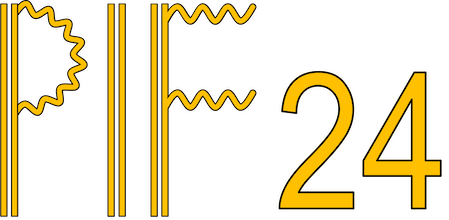Speaker
Description
The quantum electrodynamic (QED) theory predicts the photon emission and pair creation in QED cascades mainly occur in a forward cone with finite angular spread $\Delta\theta \sim 1/\gamma_{i}$ along the momenta of incoming particles. This finite beaming effect has been assumed to be negligible because of the particles' ultra-relativistic Lorentz factor $\gamma_{i}\gg1$ in laser-driven QED cascades. We develop an energy- and angularly resolved particle-tracking code, and prove that accounting the finite angular spread in the outgoing particle momentum can improve substantially the agreement between the simulation and exact QED results. The narrow beaming in each QED event could be accumulated to significantly reduce the growth of particle number in the long-term development of QED cascades, but can hardly affect the early formation of the cascades. For QED cascades driven by two counter-propagating circularly polarized laser pulses, the finite beaming effect could decrease the final yield of the particles, especially at ultrahigh intensities by more than one order of magnitude.

